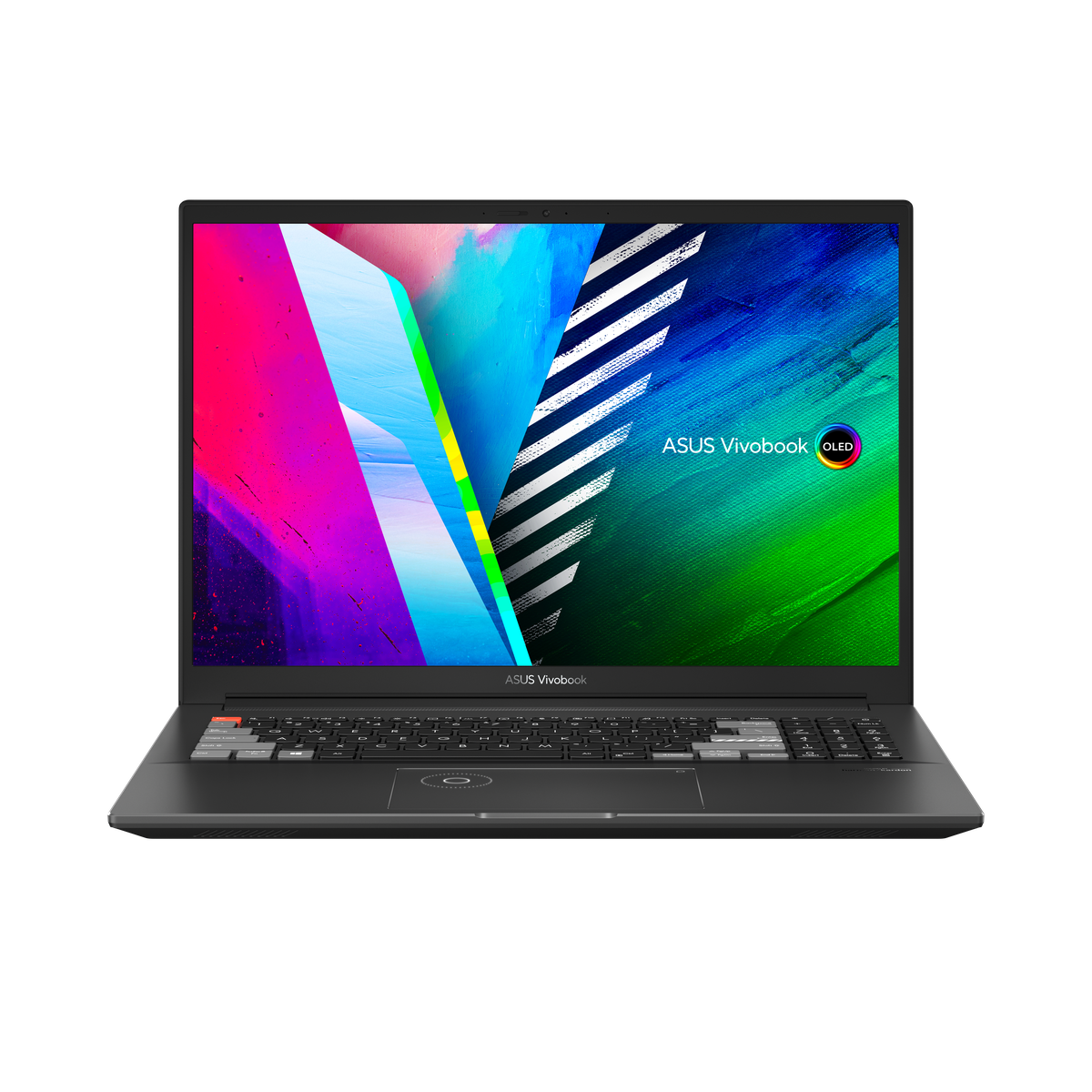Asus has announced the ProArt StudioBook 16 OLED and the ProArt StudioBook 16 Pro OLED, two of the first 16-inch laptops to include 4K OLED HDR displays. Per Asus, the displays will cover 100 percent of the DCI-P3 color gamut and deliver a 1,000,000:1 contrast ratio (neither of which is uncommon among 4K OLED panels). The laptops target creative professionals who work in “color-critical” applications.
The two devices come with an interesting new peripheral called the Asus Dial, a physical wheel on the left side of the keyboard deck. Users can map this controller to adjust various parameters in Adobe apps, which Asus says include After Effects, Photoshop, Photoshop Lightroom Classic, and Premiere Pro.
The StudioBook 16 and StudioBook 16 Pro will be available in North America in Q4, starting at $1,999.99 and $2,499.99, respectively. The difference between the two models is largely the chips. The Pro can come with an AMD Ryzen 5000 H-Series mobile processor or an Intel Xeon processor as well as an Nvidia RTX A2000 or A5000 GPU; the regular StudioBook can come with a Ryzen 5000 H-series or Intel Core i7 chip, and an Nvidia GeForce RTX 3070 or RTX 3060 GPUs.

Asus’ budget-oriented VivoBook line has also been outfitted with OLED screens, and some will have a digital version of the Asus Dial built into the touchpad. The 14-inch, 15-inch, and 16-inch models will start as low as $749.99.
A new creator-oriented ZenBook Pro Duo 15 OLED is also coming in Q4 ($2,799.99), featuring Asus’ signature secondary touchscreen on the keyboard deck; a non-Duo version with just a single screen will also be available starting at $1,469.99. The Duo includes Intel processors up to a Core i9 and an RTX 3070 GPU; the standard model has Ryzen 5000 processors and an Nvidia RTX 3050 Ti GPU.
Even Asus’ ExpertBook business laptops, known for being mind-blowingly light, are getting OLED panels. The new ExpertBook B5 OLED and convertible B5 Flip OLED are both powered by 11th Gen Intel processors, with models starting at $1,299.99.
Asus made a splash in the ultraportable market last year with its ZenBook 13 OLED, delivering a display technology that was once a luxury affair for as low as $800. After Samsung announced plans to mass-produce laptop-sized OLED panels this year, it was only a matter of time before we started seeing them implemented across smaller and more affordable models on a large scale.
https://www.theverge.com/2021/9/2/22652549/asus-proart-studiobook-16-pro-oled-vivobook-expertbook

